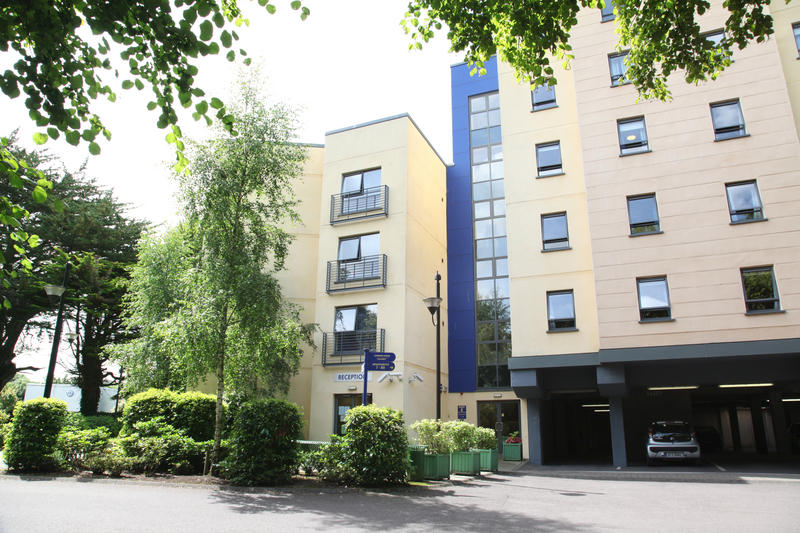Laura Marriott | Contributing Writer
Last year University College Cork (UCC) introduced a new form of accommodation: alcohol-free halls of residence. It is the first of its kind in Ireland and has the potential to be the starting point for a slow revolution in student accommodation.
Founded on the principle that alcohol would not be consumed or kept in the buildings, it provides an alternative living arrangement for students of all ages and all backgrounds. Those interested in living in the alcohol free halls have to provide a written personal statement explaining why they want to accept a place in the residence, and why they think they are suitable.
Further, unlike many forms of campus accommodation, it is open to both undergraduates and postgraduates. Thus from its very inception it aims to promote social interaction between students. The intention behind the halls is to facilitate those who either have no interest in drinking alcohol, or just don’t want it in their living space. As UCC Students’ Union President, Paddy Huaghney, states, the halls “will also appeal to students in their final year and postgraduate level who would prefer the quieter surroundings of an alcohol-free area.”
This academic year 24 students will be living in the accommodation. This includes 16 female students and 8 male, 13 of whom are first-year undergraduates. They will be joined by five postgraduates, five visiting international students and one second-year student.
This is a significant increase from last year when only six students stayed in the halls for the academic year. UCC expect that this number will increase over the coming months and years. If the halls do continue to increase in popularity it will be interesting to see whether the growth will affect other Irish campuses.
Help those who chose to live a sober life have a more social life as well
The collective nature of alcohol-free halls will also help those who chose to live a sober life have a more social life, by instantly putting people together with similar beliefs or ideas, perhaps even taking steps towards removing any stigma that may still be attached to being tee-total.
Huaghney’s statement also touched upon the fact that it might be interesting to international students. When he said that “there are students from over 80 countries worldwide studying in UCC with different cultural and religious backgrounds, and alcohol may not appeal to all these students”. As the university’s population grows increasingly diverse, it seems its halls and the services provided must too. Irish students make up one third of the students, with the rest coming from France, Germany, Denmark, Singapore, Malaysia, India, Australia, Austria and Canada.
After all, “the reasons why students may choose this option are varied and yet often quite simple – students may simply just prefer the quieter surroundings that an alcohol-free area may bring”.
One of the key motivating behind the initiative was a 2010 UCC study on alcohol consumption. The study found that 46 per cent of males and 45 per cent of female students reported binge drinking more than once a week. All of whom suffered at least one negative result, including regret and absenteeism.
There has been a concerted effort on behalf of UCC to encourage students to live healthier and more community minded lifestyles. The main focus of this is a reduction in potentially dangerous drinking habits and the knock-on effect that alcohol fuelled anti – social behaviour has both on campus and in the city as a whole.
However, a recent campus.ie 2014 National Student Survey threw the drinking habits of Irish students into an interesting light, suggesting that UCC is at the head of the curve.
It shows that alcohol does feature in most students lives with, for example, 84.4 per cent of students pre-drinking before a night out (which may perhaps have more to do with expense than any desperate urge to achieve drunkenness). Spirits (not Guinness) are the most popular drink of choice at 35 per cent closely followed by beer at 22 per cent.
between 8.73% and 10% of students stated that they do not drink at all
This will not come as a shock to most, but the statistic that many will consider surprising is that between 8.73 per cent and 10 per cent of students stated that they do not drink at all and that 58.35 per cent have never taken illegal drugs. This reinforces the idea that a slowly increasing number of students will appreciate the quieter surroundings of alcohol-free halls.
As Ireland as a whole and Dublin in particular is in the grips of an accommodation crisis, it seems unlikely that Trinity will soon be following in UCC’s footsteps. However if the interest and success of the alcohol-free halls continues to increase, it may be something that we begin to see on student campuses across the country.







